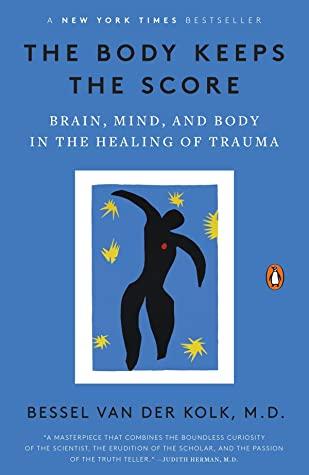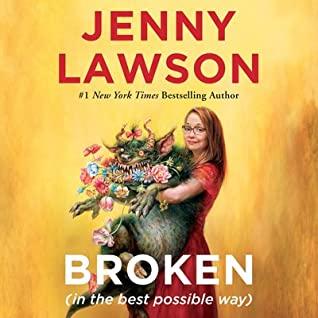In the last month or two, I seem to have gravitated towards books about mental health issues, both fiction and nonfiction. This seems fitting, since May is Mental Health Awareness Month. In nonfiction, I read David Chang’s memoir Eat a Peach, Jenny Lawson’s fantastic Broken (In the Best Possible Way), and I’m currently reading Bessel Van Der Kolk’s The Body Keeps the Score.



Eat a Peach is Chang’s memoir about growing up in the U.S. as a Korean-American and becoming a successful chef. He’s opened restaurants all over the world, and produced cooking shows and a magazine. He also struggles with manic-depression, writing about his challenges finding a therapist, going on and off medication, dealing with suicidal thoughts, and managing his anger. He discusses how his mental illness actually fuels his success, pushing him to work harder and do more, but it takes a serious toll on his health. Chang is not the nicest guy, as he portrays himself, and he isn’t someone I’d want to work for. But then the world of chefs is a very different one from what I’m used to, which may be why I’m so interested in reading chef memoirs (and also because I just like food). I appreciated the way Chang shares this very personal side of himself, and I imagine it will help others experiencing similar problems.
I love Jenny Lawson and will happily read anything she writes. Her books just keep getting better. Broken is full of Lawson’s hilarious anecdotes and dialog with her husband and daughter. But it’s more introspective than the previous two. Lawson writes very frankly (and sometimes beautifully) about depression and anxiety. It’s a collection of essays more than a linear narrative. One chapter that particularly struck me was written as a letter to Lawson’s health insurance company. I was also struck by two chapters that compare Lawson’s mental condition to weather patterns like storms and unexpected snow — constantly changing, and beautiful in its own way. She also writes about the way depression tells the mind lies, in that it puts thoughts into your head that are destructive and not true.
In a lot of ways, I couldn’t be more different from Lawson. I don’t suffer from the physical challenges she’s experienced. I also don’t have her humor and creativity. I did relate to her chapter about introverts. Pre-COVID, she talks about sometimes wishing for a “voluntary house arrest” to take time away from people, and I definitely can understand that. She’s incredibly relatable, mainly because of the way she laughs at herself and all the difficulties she faces.
Finally, I’m reading The Body Keeps the Score, which is about the long-term neurological impacts of trauma. The focus is on how the brain and the body react to trauma. While this is different from depression and anxiety, many of the topics discussed in this book are similar. For people who have experienced trauma, the brain can send the wrong signals, so people find themselves overreacting to benign situations, reliving past events over and over again, and finding they seek out harmful stimuli just to feel “alive”.
I’ve read about half of this book and I’m reading it slowly because the subject matter is overwhelming at times. One thing I find interesting is that even if you haven’t been through some form of severe trauma, it’s still enlightening to read about the different ways the brain and body interact. I found I identified with many of the issues the author raised, even if I haven’t had the kinds of experiences discussed in this book.
It’s nice to see so many books discussing mental health issues in a way that doesn’t minimize or stigmatize. Anyone have other recommendations about good books on mental health issues?

